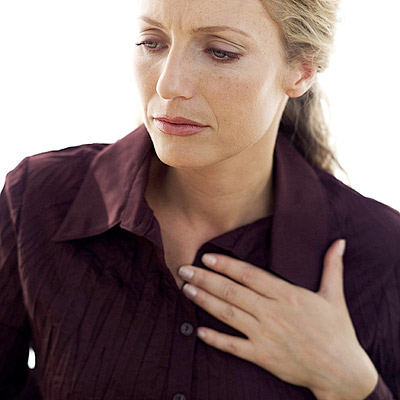How to Spot Symptoms of Women with Angina

Angina is chest pain or discomfort in breathing caused by ischemia of heart muscles, generally due to reduced flow of blood to the heart. Angina is actually one of the major symptoms of coronary artery disease, in which the heart does not receive ample amount of oxygen due to obstruction or spasm of these arteries.
Although angina is quite a common condition, its symptoms are sometimes mixed with other kinds of chest pain, especially indigestion. Angina pain starts just behind the breast bone and the patient complains of tight pressure or a feeling of heaviness in the centre of the chest. Symptoms of angina for women are different than for men, and are often confused with other kinds of chest pain, such as a gallbladder attack.
It is important to be able to differentiate pain caused by an angina attack from other chest pains, and sometimes a thorough medical check up is required to determine the difference.
Instructions
-
1
Memorize the symptoms for angina in women
Women mostly report stinging pain in the chest or abdominal region. The chest pain typically starts just behind the breast bone and runs down the arm, usually the left one. Women also often complain of pain in the neck or jaw during an angina attack. Shortness of breath, fatigue and excess perspiration might also accompany these symptoms. -
2
Note whether these symptoms have a connection with stress, exercise etc
Consider what triggers angina-related symptoms, especially pain in chest and arm. Usually these symptoms are triggered by stress, exercise or any other kind of physical exertion like climbing stairs or lifting moderately heavy objects. Knowing what factors influence the onset of chest pain and other symptoms will help you either avoid or modify them accordingly. -
3
Consult your doctor immediately
If you experience chest pain, it is highly recommended you consult with your physician and schedule an extensive medical check up to determine the root cause of the chest pain. If you believe that the pain is worse than normal, immediately call 911 and discuss your condition with the operator to know the best course of action.



